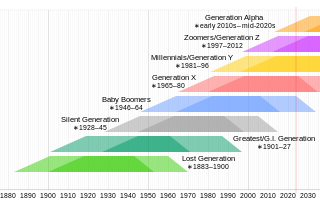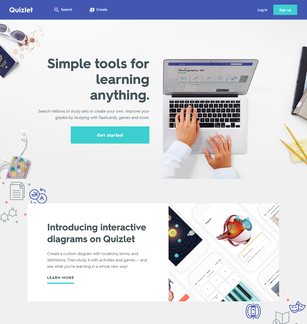
The New Childhood: Raising Kids to Thrive in a Connected World by Jordan Shapiro is a book published by Little, Brown and Company in December 2018. [1] [2]

The New Childhood: Raising Kids to Thrive in a Connected World by Jordan Shapiro is a book published by Little, Brown and Company in December 2018. [1] [2]
Shapiro, who teaches at Temple University in the College of Liberal Arts, [3] became interested in childhood development and digital play following his divorce, after playing video games with his two sons. [4] [5] He argues against strict screen time limits for kids, [6] [7] suggesting instead that parents should teach their kids how to use digital devices with integrity. [5] [8] He advises parents not to panic about new technologies. [6] [9] He advocates for joint media engagement. [10] [11]
His view that kids can only learn proper ethics for a connected world by spending more time with digital technology [12] [13] has been controversial, causing writer Naomi Schaefer Riley to complain, "the idea that parents might forbid or severely limit their children's devices—or take the devices away altogether—is anathema to him." [4] [10]
The American Academy of Pediatrics (AAP) is the largest professional association of pediatricians in the United States. It is headquartered in Itasca, Illinois, and maintains an office in Washington, D.C. The AAP has published hundreds of policy statements, ranging from advocacy issues to practice recommendations.

Anya Kamenetz is an American writer living in Brooklyn, New York City. She has been an education correspondent for NPR, a former staff writer for Fast Company magazine, and columnist for Tribune Media Services, and the author of several books. She is currently a senior advisor at the Aspen Institute.

Generation Z, colloquially known as Zoomers, is the demographic cohort succeeding Millennials and preceding Generation Alpha. Researchers and popular media use the mid-to-late 1990s as starting birth years and the early 2010s as ending birth years. Most members of Generation Z are the children of Generation X or older Millennials.
Xumo, LLC is an American internet television and consumer electronics company. It is a joint venture of Charter Communications and Comcast that operates the free ad-supported streaming television (FAST) and advertising video on demand (AVOD) service Xumo Play, and distributes Xumo Stream Box digital media players and Xumo TV smart TVs. The Xumo Play platform's service operations are based in the Greater Los Angeles suburb of Irvine, California. As of October 2020, Xumo Play has 24 million monthly active users.

Quizlet is a multi-national American company that provides tools for studying and learning. Quizlet was founded in October 2005 by Andrew Sutherland, who at the time was a 15-year old student, and released to the public in January 2007. Quizlet's primary products include digital flash cards, matching games, practice electronic assessments, and live quizzes. In 2017, 1 in 2 high school students used Quizlet. As of December 2021, Quizlet has over 500 million user-generated flashcard sets and more than 60 million active users.

The Joan Ganz Cooney Center is an independent, non-profit, non-partisan research and innovation group founded by Sesame Workshop to advance children's literacy skills and foster innovation in children's learning through digital media.

Common Sense Media (CSM) is an American nonprofit organization that reviews and provides ratings for media and technology with the goal of providing information on their suitability for children. It also funds research on the role of media in the lives of children and advocates publicly for child-friendly policies and laws regarding media.

Code for America is a 501(c)(3) civic tech non-profit organization that was founded by Jennifer Pahlka in 2009, "to promote ‘civic hacking’, and to bring 21st century technology to government." Federal, state, and local governments often lack the budget, expertise, and resources to efficiently deploy modern software. Code for America partners with governments to help deliver software services, particularly to low income communities and to people who have been left out. "A large population of American citizens in poverty are not connected and exposed to government resources that they are eligible for—nearly US$60,000,000,000 worth of potential benefits for people in need remain unclaimed every year." Projects that illustrate the organization's impact include:

James Pearson Steyer is an American civil rights attorney, professor, and author. He founded Common Sense Media, an organization that "provides education and advocacy to families to promote safe technology and media for children."

Screen time is the amount of time spent using a device with a screen such as a smartphone, computer, television, video game console, or even a tablet. The concept is under significant research with related concepts in digital media use and mental health. Screen time is correlated with mental and physical harm in child development. The positive or negative health effects of screen time are influenced by levels and content of exposure. To prevent harmful exposure to screen time, some governments have placed regulations on its usage.

StoryBots is an American children's media franchise including an educational TV series, books, videos, music, games, classroom activities and the Netflix series Ask the StoryBots.
Free-range parenting is the concept of raising children in the spirit of encouraging them to function independently and with limited parental supervision, in accordance with their age of development and with a reasonable acceptance of realistic personal risks. It is seen as the opposite of helicopter parenting. A notable text of the movement is Lenore Skenazy's book Free-Range Kids: Giving Our Children the Freedom We Had Without Going Nuts with Worry (2009).
GoGuardian is an educational software company founded in 2014 and based in Los Angeles, California. The company's services monitor student activity online, filter content, and alert school officials to possible suicidal or self-harm ideation.
Nazanin Rafsanjani is an American television and radio producer. She was the head of new show development for Gimlet Media until 2020, and before that served as Gimlet's creative director and a senior producer for The Rachel Maddow Show.

Eighth Grade is a 2018 American independent coming-of-age comedy-drama film written and directed by Bo Burnham in his feature-length directorial debut. It stars Elsie Fisher as Kayla, a teenager attending middle school who struggles with anxiety but strives to gain social acceptance from her peers during their final week of eighth grade. She copes by publishing vlogs as a self-styled motivational guru but spends much of her time obsessing over social media, frustrating her otherwise supportive father Mark, whom she alienates despite his wish to be present in her life as her sole parent.
Big Tech, also known as the Tech Giants, are the largest information technology companies. The term most often refers to the Big Five tech companies in the United States: Alphabet (Google), Amazon, Apple, Meta, and Microsoft. The term can also include major Chinese technology companies, including the grouping of Baidu, Alibaba, Tencent, and Xiaomi (BATX). Big Tech can also include smaller tech companies with high valuations, such as Netflix and Nvidia, or non-tech companies with high-tech practices, such as the automaker Tesla. The concept of Big Tech is analogous to the consolidation of market dominance by a few companies in other market sectors, such as Goldman Sachs, Morgan Stanley, and J.P. Morgan in investment banking, the Big Three consulting firms, Big Oil, and Big Media.

Generation Alpha is the demographic cohort succeeding Generation Z. Researchers and popular media use the early 2010s as starting birth years and the mid-to-late 2020s as ending birth years . Named after alpha, the first letter in the Greek alphabet, Generation Alpha is the first to be born entirely in the 21st century and the third millennium. Members of Generation Alpha are usually the children of millennials and some of older members of Generation Z.
Vivienne L’Ecuyer Ming is an American theoretical neuroscientist and artificial intelligence expert. She was named as one of the BBC 100 Women in 2017, and as one of the Financial Times' "LGBT leaders and allies today".

Jordan Shapiro is an American author known for his work on parenting, education, gender, and technology.

Google Family Link is a family parental controls service by Google that allows parents to adjust parameters for their children's devices. The application allows parents to restrict content, approve or disapprove apps, set screen times, and more. Google Family Link requires Google accounts in order to access the app remotely.